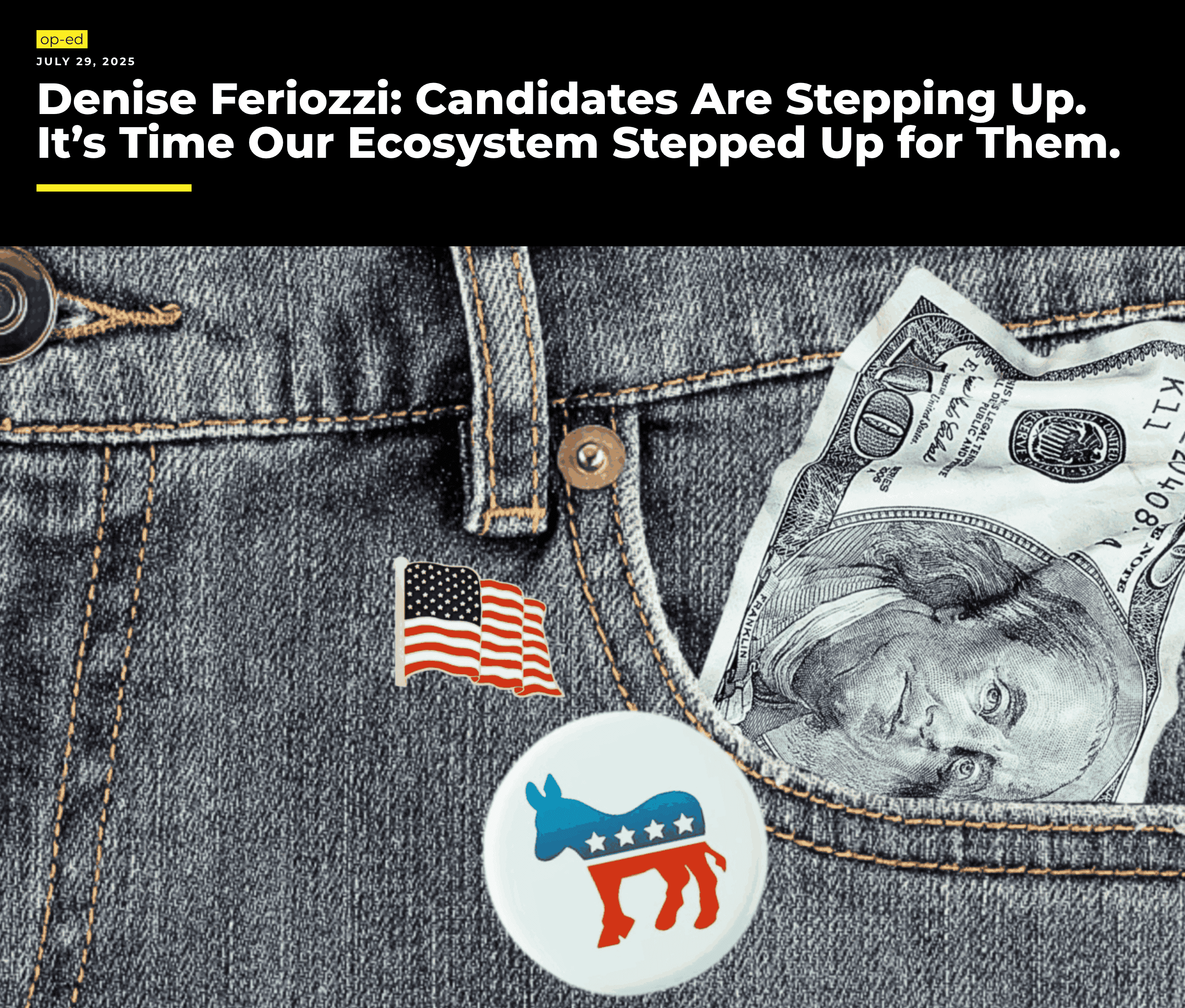News: Candidates Are Stepping Up. It’s Time Our Ecosystem Stepped Up for Them

Every election cycle, we talk about building up our bench. Every year, we celebrate the courage of first-time candidates who step up to lead in their communities. And yet, when campaign season ends, many of those same candidates are left wondering if the system that cheered them on ever intended to support them in the first place. As we head into a pivotal midterm cycle which, if history is any indication, is likely to take place in a friendly electoral environment for progressives, now is the time to rethink our approach to downballot investments. A simple shift in resource allocation could turn a good night into a great night for our movement, both in 2026 and beyond.
The challenges we’re facing are perfectly illustrated by the Pipeline Fund’s 2024 Candidate Experience Survey – the largest known national survey of progressive state and local candidates – which was released earlier this month. The data offers a stark look at what it actually takes to run for office in this moment and the massive gaps that exist across our ecosystem. Nearly 1,000 candidates participated, most of them women, people of color, LGBTQ+ individuals, and working-class leaders, and what they shared should serve as both a wake-up call and a rallying cry.
Of those surveyed, 82% of respondents were first-time candidates, and nearly half ran in GOP-held or GOP-leaning districts. These are the races where progress starts and where it’s often hardest to break through. But even with all the barriers, these candidates showed up. They raised their hands, filed their paperwork, and put their lives on hold to run. What didn’t show up? The resources.
58% of first-time candidates said they didn’t have the support they needed to run effectively. That includes basics like fundraising help, volunteer infrastructure, and access to trained campaign staff. Many candidates took on debt or left their jobs to run. And still, they were met with skepticism from donors, silence from institutions, and, in many cases, outright harassment on the campaign trail.
More than 60% of candidates surveyed experienced harassment during their campaigns. One in five avoided campaigning alone out of fear for their safety. And in the wake of recent political violence – like the tragic shooting in Minnesota earlier this month – it’s clear that this isn’t just a candidate challenge. It’s a democratic crisis.
What’s most striking about our survey, though, isn’t the hardship. It’s the hope. 41% of candidates who lost their races said they plan to run again. That number is even higher for candidates under 40, candidates of color, and LGBTQ+ candidates. These are the people who believe in our democracy enough to come back and try again, even after being harassed, underfunded, and underestimated.
That kind of resilience deserves more than our admiration. It deserves our investment. Despite these daunting challenges, the reality is that simple shifts in our approach to funding our ecosystem can yield dramatic results. Right now, progressive donors spend billions every cycle on federal races. Reallocating just 1–2% of that spending could transform what’s possible in state legislative, school board, and city council races across the country.
We’ve already seen what early investment can do. In 2021, our partners at the Florida Pipeline Project started the School Board Protection Project to fight back against Moms for Liberty and Gov. DeSantis’ takeover of school boards. In 2024, 80% of their candidates won, crushing conservative candidates and flipping key seats to progressive control. That success wasn’t just about individual candidates – it was the result of early, strategic investment in campaign infrastructure, staff, training, and local coalition-building.
This model holds true across the board. When candidates have early access to campaign staff, they can focus on reaching voters – not scrambling to hire. When they receive digital support and fundraising infrastructure early, they can build name ID and momentum in time to make it matter. When they’re plugged into coordinated, state-based support networks, they aren’t reinventing the wheel or running in isolation.
We don’t need billion-dollar super PACs to make a difference, we just need to rethink our approach. Sometimes $25,000 in February matters more than $200,000 in October. That’s the kind of shift our ecosystem needs to adopt. Late ad buys don’t build power. Infrastructure does.
It’s time we built an ecosystem that ensures the next generation of leaders doesn’t just run, but wins. If we do this correctly, we’ll not only see dividends as early as 2026, but beyond. The right recognizes the importance of building infrastructure and thinking long-term. They invest accordingly. It’s time for us to do the same.
Read more here.

